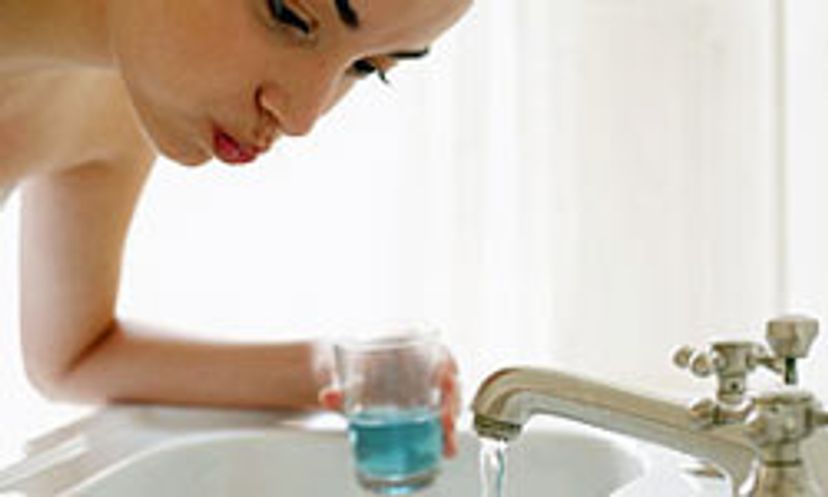
About This Quiz
Taking this quiz won't make your breath smell better, but it will show you how much you know about something that does: mouthwash. So rinse, spit and take this quiz to test your mouthwash IQ.Most mouthwashes have an added scent -- usually a variation on mint -- that helps mask bad breath odors.
Even though mouthwash helps fight cavities, brushing and flossing are still necessary to remove plaque and bacteria from the mouth.
According to the American Dental Association, kids under the age of 6 should not use mouthwash because it's difficult for them to avoid swallowing it.
Advertisement
The main ingredient in most liquid mouthwashes is water.
Many mouthwashes contain fluoride, which strengthens tooth enamel and makes teeth more resistant to the acid that causes decay.
Another word for bad breath is halitosis. Gingivitis and periodontists are both words to describe gum disease.
Advertisement
Antiseptics fight bacteria, which can cause tooth decay and gum disease.
Studies show that when used in combination with brushing and flossing, mouthwash can help remove more plaque and lower the risk of developing gingivitis than if you just brush and floss.
It may sound gross, but the ancient Romans used urine as a mouthwash. The high ammonia content acted as a cleanser for teeth and gums.
Advertisement
If you or someone you know has swallowed a large amount of mouthwash, call the National Poison Control Center. Make sure to have the bottle handy so you can identify the ingredients over the phone.
Some scientific studies have found links between regular mouthwash use and oral cancer. However, the American Dental Association still lists mouthwash as a good way to fight cavities and prevent gum disease.
While many mouthwashes contain alcohol, some do not, including natural rinses and mouthwashes designed for use by children.
Advertisement
The first mass-produced mouthwashes appeared in the late-1800s.
Not all mouthwashes burn. The burning sensation you feel when you use some mouthwashes is usually caused by the high alcohol content, and not all rinses contain alcohol.
Fluoride mouthwashes strengthen tooth enamel and remineralizing mouthwashes help heal lesions inside the mouth, but it's antimicrobial mouthwashes that fight bacteria.
Advertisement
While mouthwash has bacteria-fighting benefits and makes your breath smell nice, many dentists and even the American Dental Association will tell you that using it isn't a requirement, especially if you brush and floss regularly.
Changing color shows kids that their mouthwash is working, giving proof that they're making their mouth cleaner by rinsing.
Swishing helps the mouthwash reach all parts of the mouth, and it can also help dislodge particles that were missed during brushing so they can be rinsed away.
Advertisement
Check out the Web site of the American Dental Association for a list of ADA-approved mouthwashes.